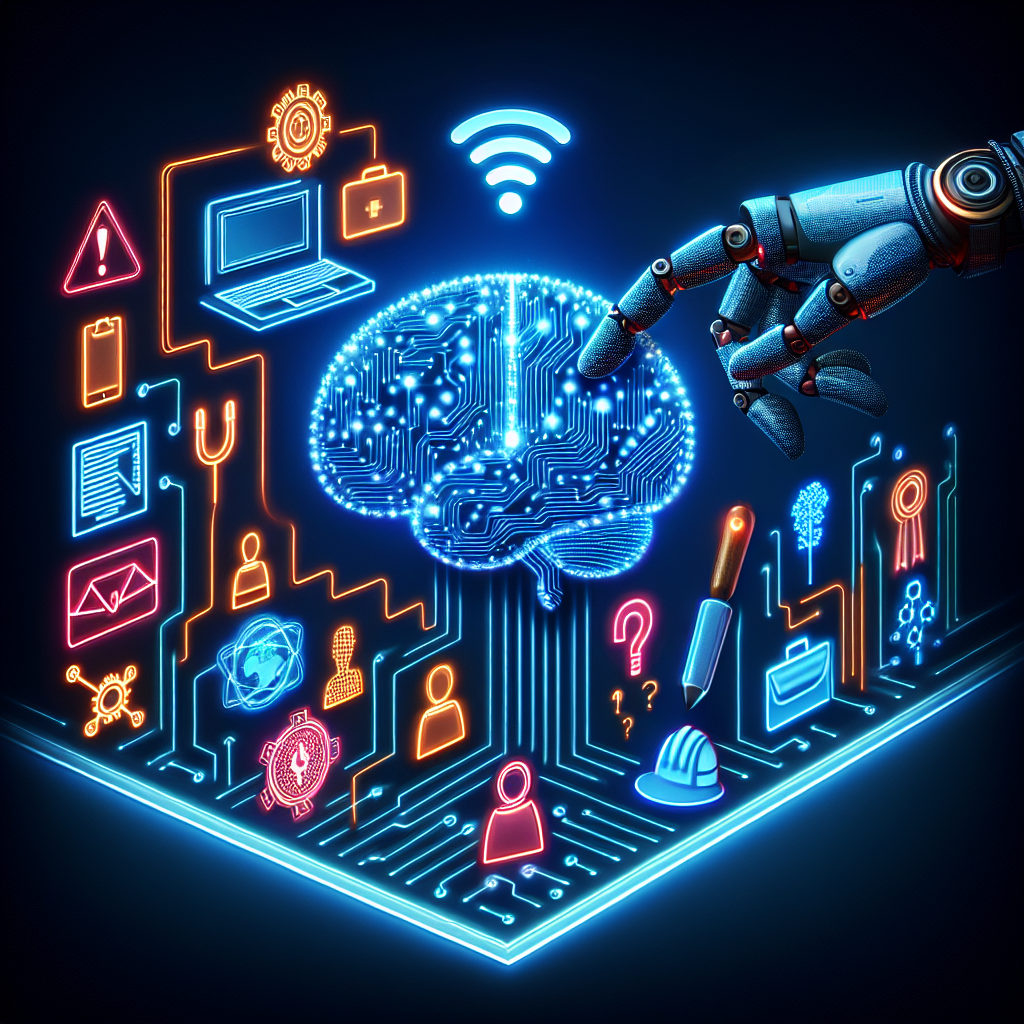Artificial General Intelligence (AGI) has long been a topic of fascination and concern in the field of artificial intelligence. AGI refers to a type of artificial intelligence that can perform any intellectual task that a human can do. This includes tasks such as reasoning, problem-solving, learning, and understanding natural language. With the rapid advancements in AI technology in recent years, there is a growing concern about the impact of AGI on the job market. Will robots eventually replace humans in the workforce? In this article, we will explore this question and discuss the potential implications of AGI on the job market.
The Impact of AGI on the Job Market
The rise of AGI has sparked a debate about the potential impact on the job market. On one hand, proponents of AGI argue that it will lead to increased efficiency, productivity, and innovation in the workforce. AGI has the potential to automate repetitive and mundane tasks, allowing humans to focus on more creative and complex tasks. This could lead to higher quality work, increased job satisfaction, and a more skilled workforce.
However, there are also concerns about the potential displacement of jobs due to AGI. As AGI becomes more advanced, it has the potential to perform a wide range of tasks that are currently done by humans. This could lead to job losses in industries such as manufacturing, transportation, customer service, and administrative support. According to a report by McKinsey Global Institute, up to 800 million jobs could be automated by 2030 due to advancements in AI and robotics.
Furthermore, there is a concern that the rise of AGI could exacerbate income inequality. As low-skilled jobs become automated, workers without specialized skills may struggle to find employment. This could lead to a widening gap between the wealthy and the working class, as those with the necessary skills to work alongside AGI will see their wages increase.
On the other hand, some experts argue that AGI will create new job opportunities in fields such as AI research, data science, and robotics. As AGI becomes more prevalent, there will be a growing demand for skilled workers who can develop, maintain, and improve AI systems. Additionally, AGI has the potential to create new industries and markets that we cannot yet imagine, leading to the creation of new jobs that do not currently exist.
Overall, the impact of AGI on the job market is uncertain and complex. While AGI has the potential to revolutionize the workforce and create new opportunities, it also poses challenges in terms of job displacement and income inequality. It is important for policymakers, businesses, and workers to prepare for the potential changes that AGI will bring to the job market.
Frequently Asked Questions
Q: Will AGI replace all human jobs?
A: While AGI has the potential to automate a wide range of tasks, it is unlikely to completely replace all human jobs. Humans possess unique skills such as creativity, emotional intelligence, and critical thinking that are difficult to replicate with AI. AGI is more likely to augment human capabilities rather than replace them entirely.
Q: What industries are most at risk of job displacement due to AGI?
A: Industries that rely heavily on repetitive and routine tasks are most at risk of job displacement due to AGI. This includes industries such as manufacturing, transportation, customer service, and administrative support. However, new job opportunities may arise in industries that require specialized skills in AI, data science, and robotics.
Q: How can workers prepare for the impact of AGI on the job market?
A: Workers can prepare for the impact of AGI on the job market by acquiring new skills and staying up-to-date on advancements in AI technology. This may involve pursuing education and training in fields such as AI, data science, and robotics. Additionally, workers can focus on developing skills that are difficult for AI to replicate, such as creativity, emotional intelligence, and critical thinking.
Q: What role do policymakers play in preparing for the impact of AGI on the job market?
A: Policymakers play a crucial role in preparing for the impact of AGI on the job market. They can implement policies that support workers who are displaced by automation, such as job training programs and social safety nets. Policymakers can also encourage businesses to invest in workforce development and retraining programs to ensure that workers are prepared for the changes brought about by AGI.
In conclusion, AGI has the potential to revolutionize the job market and create new opportunities for workers. While there are concerns about job displacement and income inequality, AGI also has the potential to increase efficiency, productivity, and innovation in the workforce. It is important for businesses, policymakers, and workers to prepare for the potential changes that AGI will bring and to work together to ensure a smooth transition to a future where humans and AI can work together harmoniously.

